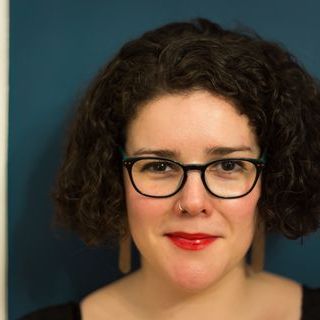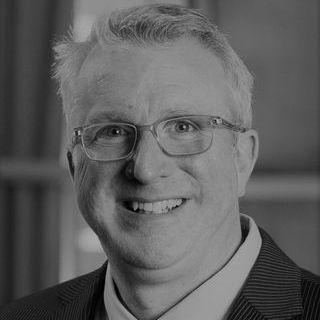Programme
| Time | Session |
|---|---|
| 09:30 | Registration & Refreshments |
| 10:00 |
Welcome Dr Lucy Harper, Chief Executive of AMI |
| 10:10 |
A Microbiologist’s Career: From The UK to The USA and the Research Adventure Along the Way Dr Alexander Rickard, University of Michigan, USA |
| 10:40 |
ECS Presentations Session 1 |
| 10:40 |
Artisanal colonial cheese as a source of potentially probiotic lactic acid bacteria in South Brazil: Functionality and safety assays Silvani Verruck, Federal University of Santa Catarina, Brazil |
| 10:55 |
Greenhouse Gas emissions in Southeast Asian peatlands driven by iron mediated microbial processes: a microcosm study Andrew Laloo, National University of Singapore, Singapore |
| 11:10 |
Strigolactones act as inhibitory signals for Pseudomonas spp. in tomato (Solanum lycopersicum) rhizosphere Rahul Jain, University of Amsterdam, Netherlands |
| 11:25 |
The influence of management systems on Arbuscular Mycorrhizal fungi recruitment by grapevine rootstocks Romy Moukarzel, Lincoln University, New Zealand |
| 11:40 | Refreshments |
| 12:00 | ECS Presentations Session 2 |
| 12:00 |
Antimicrobial production properties of psychrotrophs isolated from Antarctic marine invertebrates and their thermal and salinity tolerances Kudzai Hwengwere, British Antarctic Survey and University of Plymouth, UK |
| 12:15 |
Exploitation of microbial volatiles as diagnostic markers of biofilm infections: methodology optimisation and challenges Harsh Modha, University of the West of England, UK |
| 12:30 |
Development of sustainable, antimicrobial essential oil microcapsules for use within healthcare textiles Katie Silver, De Montfort University, UK |
| 12:45 |
Understanding the efficacy of antimicrobial aerosols through the development of an airborne bacteriophage-based model Alex Cooper, University of the West of England, UK |
| 13:00 | Lunch & Networking |
| 13:30 | ECS Attended Poster Session & Networking |
| 14:00 |
A career case study - Public Health Microbiology (during Poster Session) at The National Collection of Type Cultures (NCTC) stand |
| 15:00 |
Girl Bossing Imposter Syndrome? Dr Órla Meadhbh Murray, Institute for Medical Humanities, Durham University, UK |
| 15:30 |
Building and exploiting a synthetic yeast genome Dr Ben Blount, University of Nottingham, UK |
| 16:05 |
Close & Prizes |
Session Descriptions
ECS Presentations
Eight Early Career Scientists give 15 minute presentations exploring their work.
A Microbiologist’s Career: From The UK to The USA and the Research Adventure Along the Way
Alex will share his experiences moving up the academic ladder while traversing thousands of miles and navigating different environmental, social, and academic/research surroundings. He will address questions about academic career paths in microbiology, especially those that lead abroad, and is open to having a chat over a cup of tea during the conference!
Girl Bossing Imposter Syndrome?
Do you persistently feel like a fraud despite your achievements? Do you worry that you are one mistake away from being exposed as an imposter? You may be experiencing imposter syndrome. Imposter syndrome has become a popular topic with TED talks and public ‘confessions’ from businesspeople, world leaders, and celebrities. However, many of these discussions focus on individual experiences and ignore the structural reasons which produce imposter feelings, such as discrimination and exclusionary institutions. This talk provides a critical discussion of imposter syndrome based on recent sociological research on imposter syndrome and inequalities in higher education in Sociology and the LSE HE blog, alongside broader research on unequal early career academic experiences. In short, this talk will address what produces imposter feelings and how might we collectively respond in UK universities?
Building and exploiting a synthetic yeast genome
The international Sc2.0 project is building the first synthetic eukaryotic genome. By designing, assembling and debugging DNA on a genomic scale, we have refined our understanding of how genomes work, developed new technologies and imbued cells with new abilities. The most prominent of these abilities is SCRaMbLE, a system that rearranges synthetic chromosomes on-demand. Using SCRaMbLE, we can generate a massive amount of genotypic and phenotypic diversity from which individuals with enhanced characteristics can be identified.
In this talk I will discuss the process of building an Sc2.0 synthetic chromosome (synXI); the convoluted and at times surprising ordeal of debugging synXI; and the use of SCRaMbLE to rapidly generate strains with improved production of high value compounds, growth in new carbon sources and tolerances to a range of different stresses.
Networking Sessions
Drop by AMI's Policy Stand to find out more about the different ways you can maximise the reach of your research, alongside the traditional publishing pathway. We will introduce you to public policy as well as how science can and should be used to inform decision-making. Get involved in our dotmocracy, identifying which research area you think should be on policymaker's radars and take part in the Policy Prize by answering three questions about your poster / talk!
Come and talk to the AMI publishing team and the LAM Editors and find out about:
- Careers in science publishing
- Academic editor roles and our editor training programme
- The publishing process and how to get published








